An excellent source of vitamins and minerals, milk is a nutrient-rich liquid that comes from mammals or even plants. It contains calcium, magnesium, riboflavin, phosphorus, potassium, zinc, and vitamins A and B12. Newborns and young mammals drink the milk of their mothers as their primary source of nutrition before moving on to solids. This includes kittens, who drink milk from nursing queens.
Many cat owners are curious to discover if cats are allowed to drink milk. And if so, what types of milk can they drink? Is milk from other animals and nuts safe for them? In this article, we discuss:
- What happens when kittens drink milk?
- What happens when cats drink milk?
- How much milk can a cat drink?
A friendly reminder to paw parents, cat fosters, and rescue volunteers reading this blog post: This is only a guide and should not replace consultations or trips to the veterinarian.
What happens when kittens drink milk?
When a kitten drinks her mother’s milk, her gut breaks down the nutrients needed by the body with the help of the enzyme lactase. Her stomach is able to process her mother’s milk until it’s time for her to move on to soft food.
If a kitten drinks milk from other mammals, she may not be able to handle the amount of protein, carbohydrate, and fat found in them. For example, kittens who drink cow milk may suffer from diarrhea and dehydration. Veterinarians recommend feeding only specially formulated kitten supplement formula, which is also known as kitten glop.
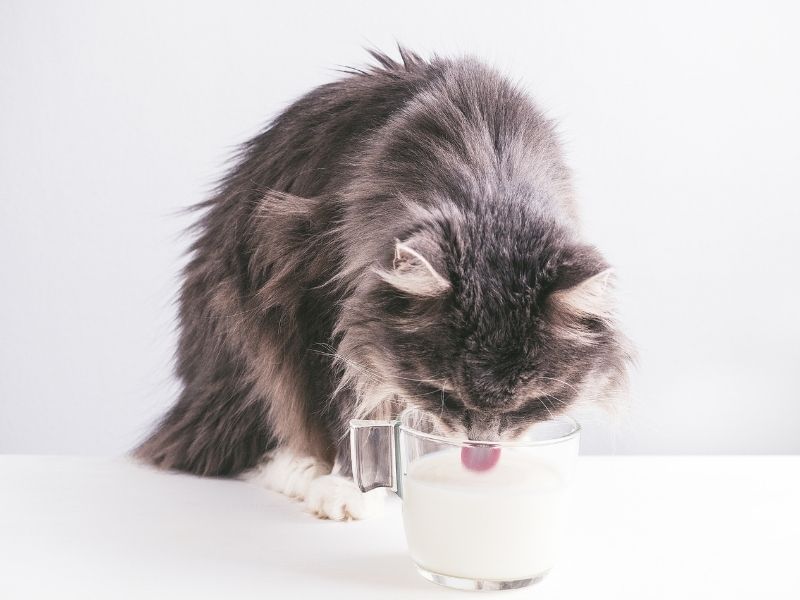
What happens when cats drink milk?
After a kitten slowly transitions to eating solids, the production of lactase decreases in her stomach, thereby lessening her capacity to process milk. This is the reason why cats are generally considered lactose-intolerant.
Depending on a cat’s milk tolerance level and how much milk she drinks in one sitting, she may experience unwanted side effects. These include vomiting, bloating, severe diarrhea, and intestinal cramps. A cat may also exhibit other symptoms based on additional ingredients found in the milk, especially if they are known to be harmful for cats.
Can cats drink cow milk?
Collected from cows found in dairy farms, cow milk is the most commonly consumed milk by humans. It contains high levels of lactose and make up about 40% of the total calories of whole milk. Since cats cannot properly digest lactose or even taste its natural sweetness, it is advisable for them not to drink cow milk.
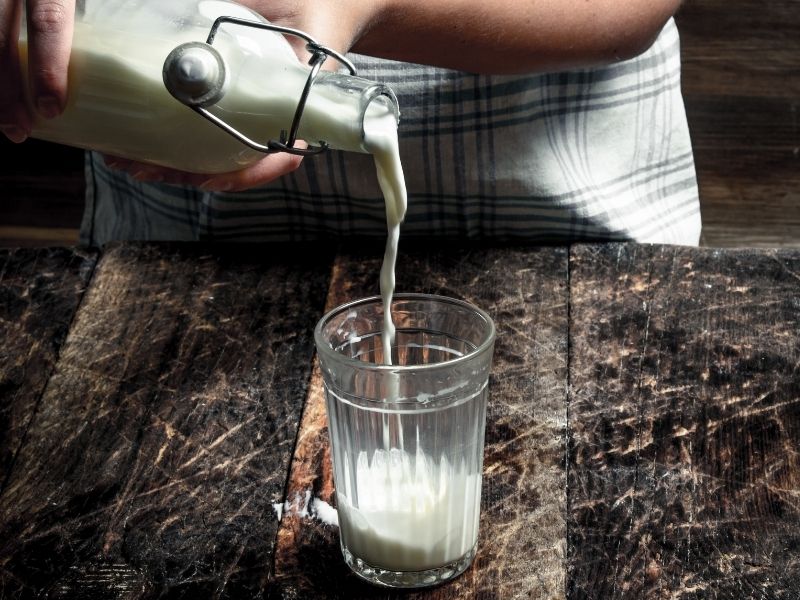
Can cats drink goat milk?
Goat milk is said to be easier to digest than cow milk. It also has a thicker and creamier consistency than cow and plant-based milk. But because it still contains a considerable amount of lactose, most adult cats won’t be able to digest it.
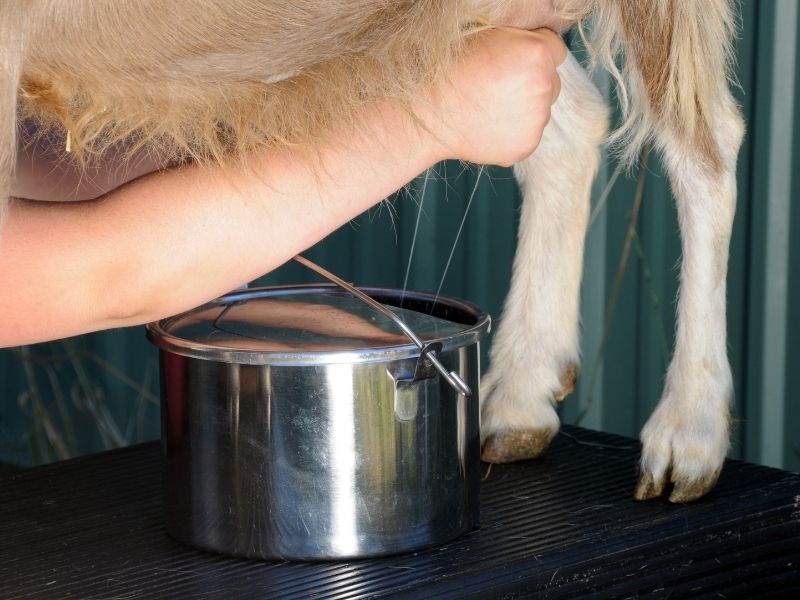
Can cats drink chocolate milk?
Made with cocoa beans, cocoa butter, sugar, and milk powder, chocolates are toxic for cats because of the theobromine and caffeine found in cocoa. Sugar is also an ingredient that they should not consume because eating it can lead to obesity, diabetes, and dental problems. Since most chocolate-flavoured milk drinks are made from cow milk, it is not wise to make your cat drink it.
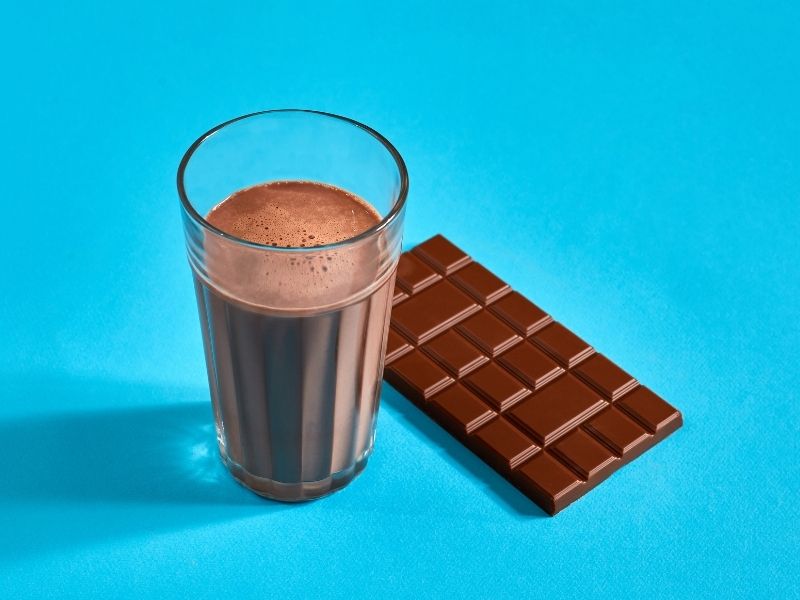
Can cats drink lactose-free milk?
Lactose-free milk contains the enzyme lactase, making it easier for your cat to digest the drink. However, this type is usually made with cow milk, so you should limit the amount she takes. It is best to give it as an occasional treat. There are also lactose-free, plant-based milk alternatives available in the market, but each type should be reviewed carefully before being given to a cat.
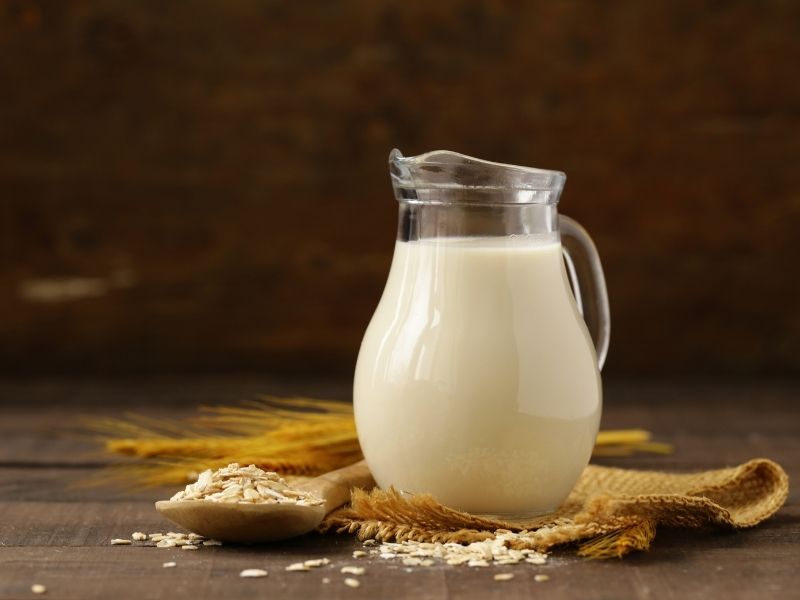
Can cats drink almond milk?
Containing vitamin E and healthy unsaturated fat, almond milk is created by soaking almonds and then blending them with water. It is a lactose-free, low-calorie option that cats can drink occasionally and in limited amounts—as long as they are not allergic to the nut. This type of milk can also be used to hide your cat’s medication.

Can cats drink cashew milk?
Another popular nut-derived alternative, cashew milk comes from water-soaked cashew nuts that are blended and strained. But unlike almond milk, cashew milk should not be given to kittens and cats. It is known for being high in fat and causing digestive upset and/or allergic reaction.
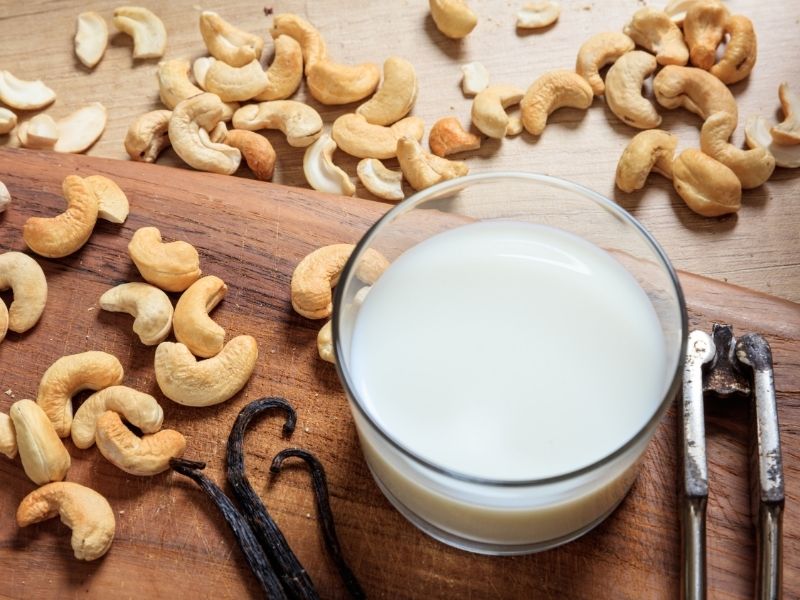
How much milk can a cat drink?
Cats are obligate carnivores that need to eat animal-derived meat to function properly. Milk is not an essential part of their daily diet, so it is considered a treat for cats whose stomachs can tolerate it. Treats should only make up 5 to 10% of a cat’s total calorie intake, so a spoonful of milk should be enough. Giving your cat too much milk on a regular basis will cause complications such as weight gain, feline obesity, dental issues, and joint issues.
In conclusion
Always consult with a veterinarian before giving your cat anything new to drink or eat. Keep an eye on her when she tries anything for the first time, monitoring her behaviour and litter box habits over the next 24 hours to guarantee she is doing fine. If you care for a cat known for having a sensitive stomach, you need to be extra careful about the human food you feed her.
Read more about cats in our blog.
Leave a comment
Your email address will not be published. All fields are required.